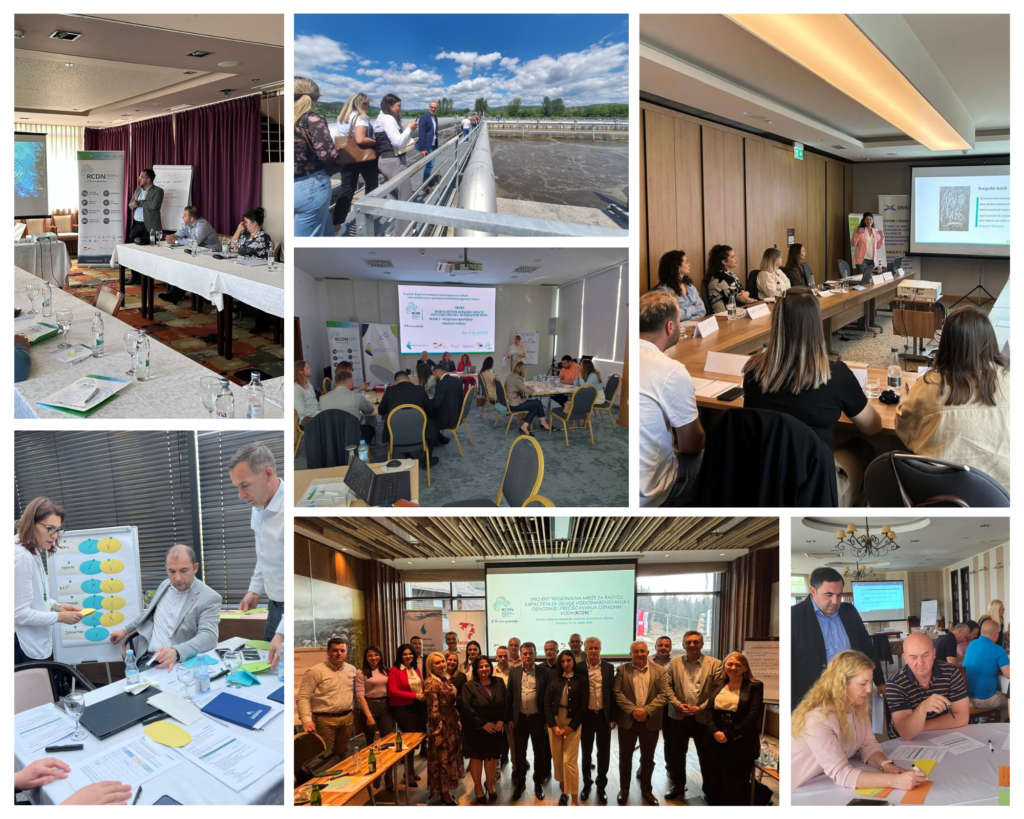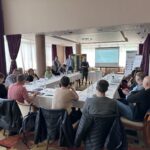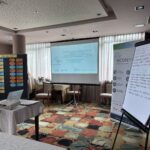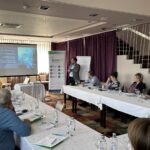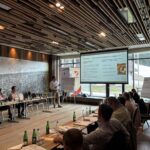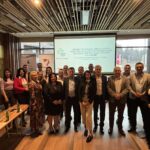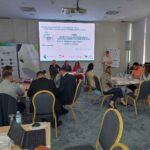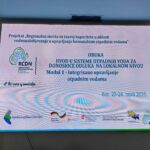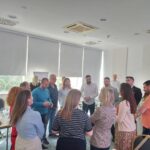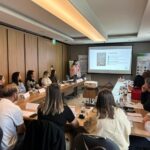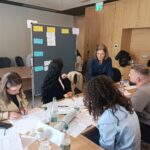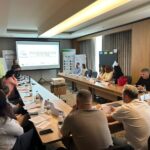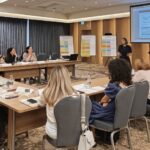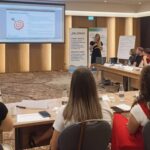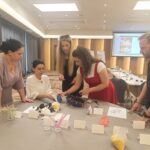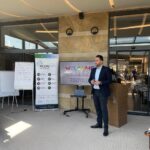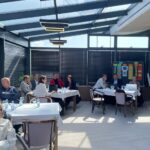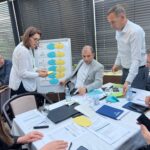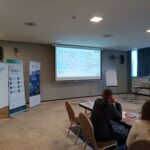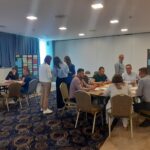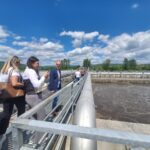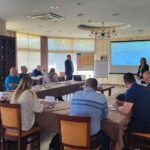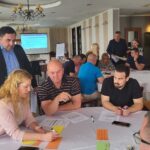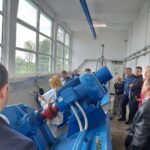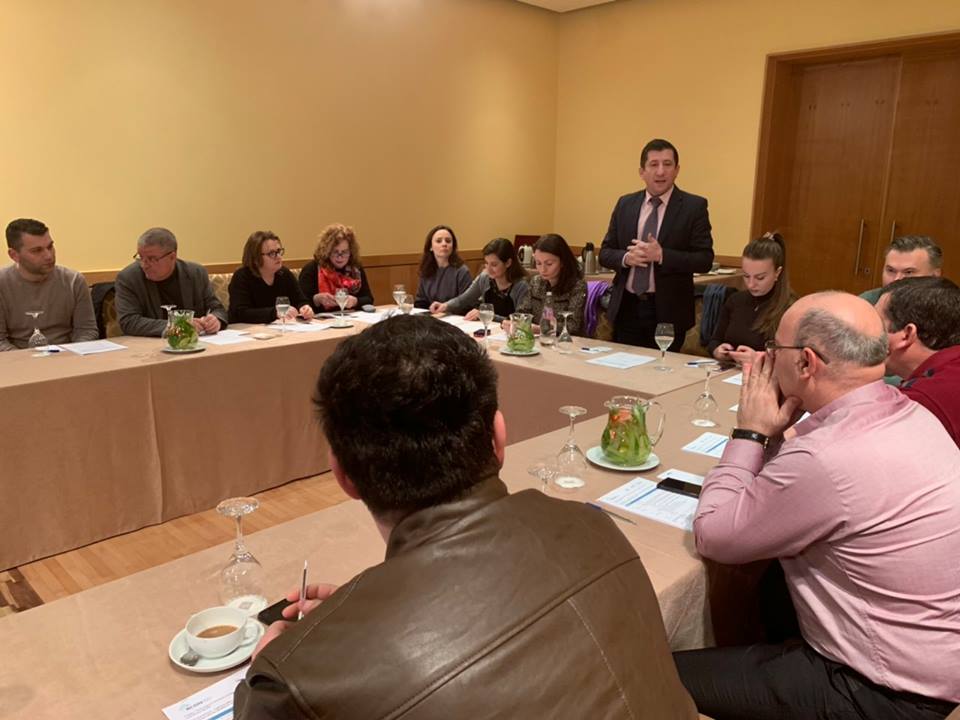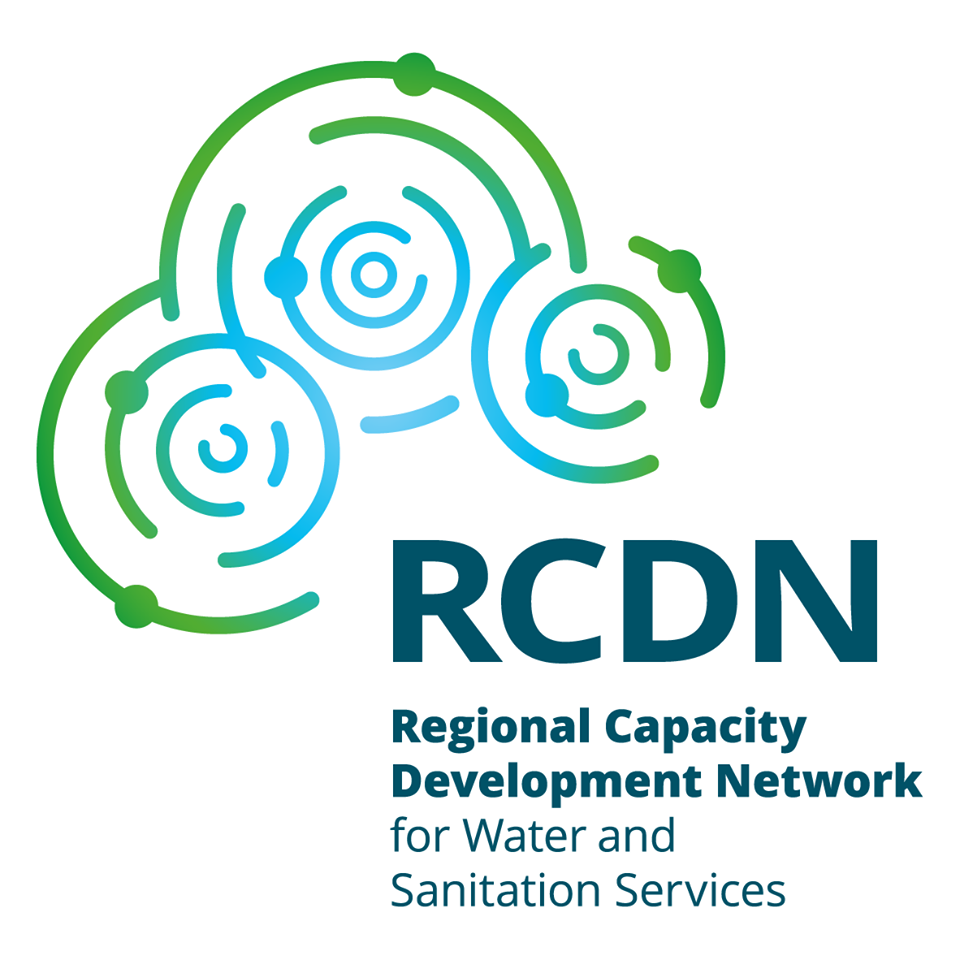To support the public utility companies and the local governments in addressing wastewater challenges in the Western Balkans, RCDN has launched Wastewater Capacity Development Programmes. These programmes are designed to support decision-makers, managers, engineers, and technical staff with the knowledge and skills necessary for improving wastewater collection, treatment, and overall service delivery.
The programmes’ first deliveries were done in close cooperation with the Associations of Public Utilities and the Associations of Municipalities, reflecting a shared regional commitment to improving wastewater infrastructure, compliance with EU standards, and inter-institutional collaboration.
WW CD Programme 1A: Introduction to Wastewater Systems for Decision Makers
-
Bosnia and Herzegovina
The Integrated Urban Water Management Training for local decision-makers was held in Zenica, 7-8 May 2025, bringing together representatives of public utility companies (PUCs), local government units (LGUs) and their associations from Federation of Bosnia and Herzegovina. This training equipped municipal leaders and utility representatives with the knowledge and tools to make informed, strategic decisions on wastewater infrastructure planning and implementation.
In addition to the training in Zenica, decision-makers from local governments and public utility companies across Republika Srpska explored key topics such as integrated urban water management, project implementation, sustainable planning, and tariff setting, on a training jointly organized by their associations in Jahorina, 15-16 April 2025. The training was aimed at empowering local leaders to make informed, strategic decisions to improve wastewater management and service delivery.
-
Montenegro
Training for local decision-makers, held in Podgorica, 23-24 April 2025, has brought together representatives from local government units, public utility companies, the Ministry of Ecology, Sustainable Development and Northern Development, and PROCON. The training aimed to empower participants to take an active role in the planning and implementation of wastewater infrastructure projects by strengthening their understanding of system functioning, integrated municipal wastewater management, and financial mechanisms for service sustainability.
WW CD Programme 1B: Introduction to WW systems for Managers and Engineers
-
Albania
Representatives from water utility companies from Albania, gathered in Tirana, 23-24 April 2025, as part of the first training of the programme “Regulation and Financing”. The participants were able to gain knowledge on how to better interpret the status of wastewater sector in Albania, as well as the legal and institutional wastewater framework.
The 1B programme in Albania continued with a second event on the topic “Technologies”, with representatives from eight regional water companies. During this training the participants explored fundamental topics such as the history and importance of wastewater treatment, the types of sewage networks, and the differences between decentralized and centralized systems.
-
Kosovo
Participants from regional water companies, ministries, and municipalities, gathered in Prishtina, 23-24 April 2025, and examined the current state of the wastewater sector and treatment projects in Kosovo. The training reinforced understanding of national and local frameworks, financial models, and public outreach strategies to promote proper wastewater management.
WW CD Programme 2A: Improvement of technical capacities of PUCs for O&M of WW Systems
-
Bosnia and Herzegovina
The training “Enhancing the Technical Capacities of PUCs for Operation and Maintenance of Wastewater Systems” took place in Sarajevo, 27-28 May 2025, and gathered technical staff from public utility companies and wastewater treatment plants. The participants gained practical skills for effective system maintenance, learning how to address operational challenges, and exploring strategies for communicating with industrial polluters and raising public awareness on responsible wastewater practices. The training included a study visits to WWTP Butila in Sarajevo which gave the technical staff from public utility companies and wastewater treatment plants the opportunity to see real-life applications of wastewater treatment technologies, operational procedures, and maintenance practices.
-
Serbia
The topic of “Introduction to Technology” was covered during the training that took place in Vršac, 27-28 May 2025. This event brought together technical staff from public utility companies and wastewater treatment plants, to deepen their understanding of drainage and wastewater treatment technologies, improving operational maintenance skills, and strengthen communication with service users and industrial polluters. Just like in Bosnia and Herzegovina, the training included a study visits to WWTP Vršac, and by observing how the systems operate and engaging with on-site plant staff, participants deepened their understanding of mechanical and biological treatment processes, sludge management, and practical approaches to problem-solving.
Continuing the Journey
Following the successful delivery of these first modules, RCDN will continue the implementation of the wastewater programmes across the region. After the short summer break, all programmes will continue with the second Specific Trainings of Trainers (ToT). The upcoming modules will build on the established foundations and further deepen practical knowledge, institutional coordination, and technical expertise.
Through structured capacity development, RCDN remains committed to empowering countries in the Western Balkan to advance toward sustainable and resilient wastewater management systems. By enabling informed decision-making and operational excellence, RCDN is helping to drive forward resilient, sustainable wastewater management systems across the Western Balkans, contributing to healthier communities, cleaner environments, and improved public services.

